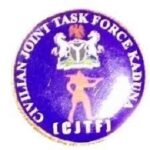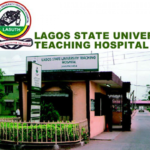UNN research group partners journalists to improve urban health
Health Policy Research Group (HPRG), University of Nigeria, Nsukka (UNN) is collaborating with journalists on communicating research findings to policymakers to improve healthcare in urban areas.
The partnership entails using media houses to showcase quality evidence from health policy and systems research to policymakers and the public to improve the delivery of health services to rural people.
HPRG, which is based at the College of Medicine, UNN, draws from the experiences of researchers across several fields in health, social, and environmental sciences through Community-Led Responsive and Effective Urban Health Systems (CHORUS PROJECT).
CHORUS is a Consortium that brings together health systems experts from Africa, Asia, and Europe, with funding from the Medical Research Council (MRC).
Speaking during the “Research-Media Bootcamp” in Enugu on Saturday, the HPRG Coordinator, Prof. Obinna Onwujekwe, said the partnership would provide linkage and framework between researchers and journalists in reporting health issues.
Onwujekwe said coming together would give journalists more understanding of the importance of research evidence in strengthening governance and facilitating efficient health service delivery.
According to him, such collaboration will further enable researchers know how to communicate with journalists and build sustainable relationships for appreciation and use of research.
He explained that HPRG was on a 5-year study of health services delivery in urban areas and how they can be mainstreamed into the formal health system for quality control reasons.
He also said that bootcamp would enable media houses put research findings in such a manner that common people can understand and help journalists appreciate research work especially on urban health.
He added that policymakers would pay more attention to health service delivery when journalists report the research findings more accurately.
Onwujekwe, who is a Lecturer in Health Administration and Management and a Professor of Health Economics, UNN, noted that urban health studies have been on for decades.
He added that this project, which began about three years ago, focused on Enugu and Anambra states, with recent spread into Rivers and Abia States.
He stated that the group identified four areas in Enugu and four in Onitsha, Anambra state as study sites.
“There are more slums in these states but we decided to select 8 as we cannot work in all the slums.
“We took major slums after research sampling and we want to find out the healthcare services provided in the slums, linkages that exist as well as problem they have in accessing health service,” he said.
He stated that the research would help improve and better the health service of people living in slums.
While urging government to do more for people living in areas, Onwujekwe said politicians should not only campaign in slums during elections but try to pay attention to their health services.
“When media inform people, they will be able to demand for a better healthcare services when they come for campaigns,” Onwujekwe said.
Speaking on the topic titled “The Act/Practice on Journalistic Writing”, Alex Enebeli, a Senior Correspondent, News Agency of Nigeria (NAN), tasked them on the need to be consistent and objective throughout their research work.
He charged on factual and accurate information to enable members of the public, especially the policymakers trust their research findings.
Presenting a paper on “Reporting For Corruption in Health Sector”, an Editor from International Centre for Investigative Reporting (ICIR), Victoria Bamas, said there were a lot corruption going on in the health sector.
She highlighted areas where corruption took place in health sector include during procurement processes, bribery and kickbacks, bid rigging, theft and diversions, and sales of drugs meant to be free.
Others, she noted, were workers attitude to work, poor service delivery, medical malpractice, negligence, fraud and falsification of medical documents.
Participants were drawn from different media houses, public relation units, academics and researchers with HPRG, UNN.(NAN)









